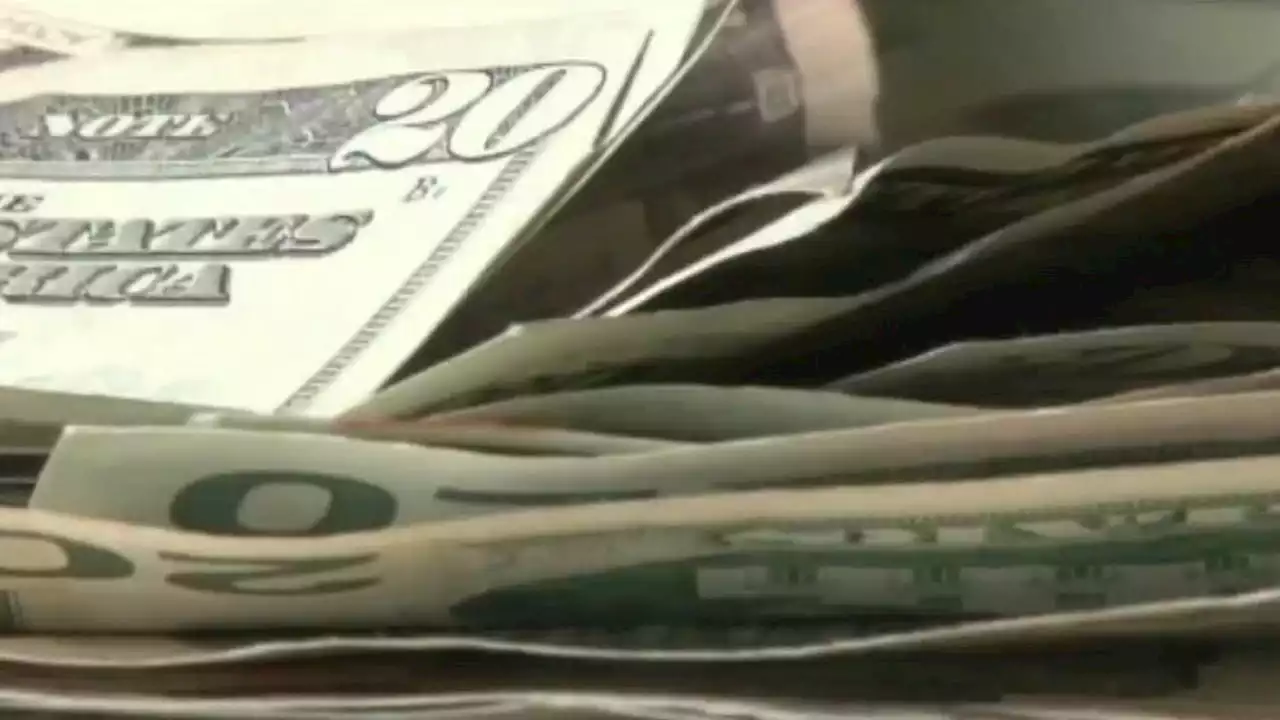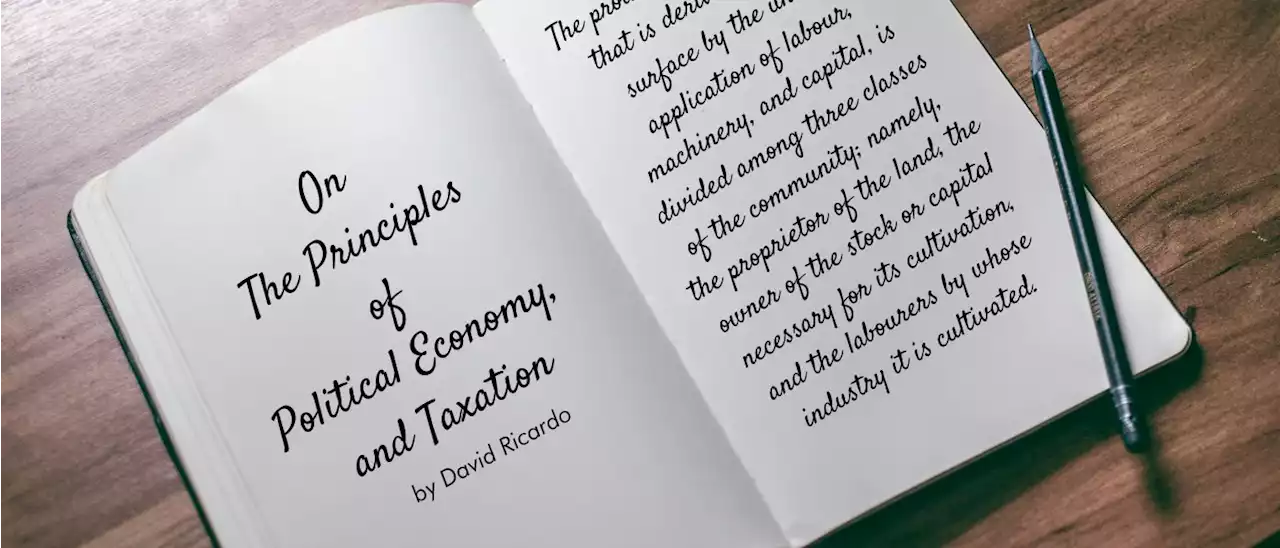'On The Principles of Political Economy, and Taxation: Chapter XIV - Taxes on Wages' nonfiction classiceconomicsbooks
The ultimate effects which will result from such taxes then are precisely the same as those which result from a direct tax on profits.
wages of labour are regulated by the price of provisions; and secondly, he denies that a tax on the wages of labour would raise the price of labour. ler quantity will be shared among the same number of consumers, and a smaller portion will fall to each. If, then, in consequence of taxation, or of difficulty of production, the price of provisions be raised, and the quantity be not diminished, the money wages of labour will rise; for as Mr. Buchanan has justly observed, "The wages of labour consist not in money, but in what money purchases, namely, provisions and other necessaries; and the allowance of the labourer out of the common stock, will always be in proportion to the supply.
have the same funds to expend on his family. Labour will therefore rise, because the demand continues, and it is only by raising the price, that the supply is not checked. If the tax had been laid at once on the people, their fund for the maintenance of labour would have been diminished in the very same degree that the fund of Government for that purpose had been increased; and therefore there would have been no rise in wages; for though there would be the same demand, there would not be the same competition.
it is a probable, but not a necessary, nor a peculiar consequence of a tax on wages, that though wages would rise, they would not rise by a sum precisely equal to the tax. the wages of manufacturing labour, would be advanced by the master manufacturer, who would be entitled and obliged to charge it with a profit, upon the price of his goods. The rise which such a tax might occasion in country labour would be advanced by the farmer, who, in order to maintain the same number of labourers as before, would be obliged to employ a greater capital.
If the clothier, the hatter, the shoemaker, &c., should be each able to raise the price of their goods 10 per cent.,—supposing 10 per cent.
But if the labourers pay no part of the tax, and yet manufactured commodities rise in price, wages must rise, not only to compensate them for the tax, but for the increased price of manufactured necessaries, which, as far as it affects agricultural labour, will be a new cause for the fall of rent; and, as far as it affects manufacturing labour, for a further rise in the price of goods.
If they could all raise the price of their goods, so as to remunerate themselves, with a profit, for the tax; as they are all consumers of each other's commodities, it is obvious that the tax could never be paid; for who would be the contributors if all were compensated? A French author of some note, has proposed to reform the finances of his country, by substituting in the room of other taxes, this most ruinous of all taxes. 'There is nothing so absurd,' says Cicero, 'which has not sometimes been asserted by some philosophers.
general taxation; and therefore in examining the effects of a low value of money confined to one country, we are also examining the effects of a high price of commodities confined to one country. The exchanges between countries are at par only, whilst they have precisely that quantity of currency which in the actual situation of things they should have to carry on the circulation of their commodities. If the trade in the precious metals were perfectly free, and money could be exported without any expense whatever, the exchanges could be no otherwise in every country than at par.
If so absurd a law, as the prohibition of the exportation of the precious metals, could be enforced, and the consequence of such prohibition were to force 11 millions instead of 10 into circulation, the exchange would be 9 per cent. against England; if 12 millions, 16 per cent.; and if 20 millions, 50 per cent. against England.
It is undoubtedly true, that "taxes upon luxuries have no tendency to raise the price of any other commodities, except that of the commodities taxed;" but it is not true, that taxes upon necessaries, by raising the wages of labour, necessarily tend to raise the price of all manufactures." Now as Dr. Smith does not contend that the tanner, the salt-maker, the soap-maker, and the candle-maker, will either of them be benefited by the tax on leather, salt, soap, and candles; and as it is certain, that government will receive no more than the tax imposed, it is impossible to conceive, that more can be paid by the public upon whomsoever the tax may fall.
be disguised, whatever forms we may constrain a value to take, whatever metamorphosis we may make it undergo, we can only have a value by creating it, or by taking it from others. The very best of all plans of finance is to spend little, and the best of all taxes is, that which is the least in amount."
M. Say does not appear to me to have consistently adhered to the obvious principle, which I have quoted from his able work; for in the next page, speaking of taxation, he says, "When it is pushed too far, it produces If a tax, however burdensome it may be, falls on revenue, and not on capital, it does not diminish demand, it only alters the nature of it. It enables Government to consume as much of the produce of the land and labour of the country, as was before consumed by the individuals who contribute to the tax.
Whether taxes be taken from revenue or capital, they diminish the taxable commodities of the state. If I cease to expend 100l. on wine, because by paying a tax of that amount I have enabled Government to expend 100l. instead of expending it myself, one hundred pounds worth of goods are necessarily withdrawn from the list of taxable
Of all commodities, none are perhaps so proper for taxation, as those which either by the aid of nature or art, are produced with Taxes on luxuries have some advantage over taxes on necessaries. They are generally paid from income, and therefore do not diminish the productive capital of the country. If wine were much raised in price in consequence of taxation, it is probable that a man would rather forego the enjoyments of wine, than make any important encroachments on his capital, to be enabled to purchase it. They are so identified with price, that the contributor is hardly aware that he is paying a tax.
Canada Latest News, Canada Headlines
Similar News:You can also read news stories similar to this one that we have collected from other news sources.
 Rideshare drivers rally outside City Hall in fight for better wages, safety conditionsThe Chicago Gig Alliance wants the City Council to take action on an ordinance that would set a minimum wage for Uber, Lyft, and other rideshare companies' drivers.
Rideshare drivers rally outside City Hall in fight for better wages, safety conditionsThe Chicago Gig Alliance wants the City Council to take action on an ordinance that would set a minimum wage for Uber, Lyft, and other rideshare companies' drivers.
Read more »
 Texas barbecue restaurant workers get more than $230K recovered in back wagesAccording to the US Department of Labor, Black's Barbecue Inc. shared servers' tips with managers.
Texas barbecue restaurant workers get more than $230K recovered in back wagesAccording to the US Department of Labor, Black's Barbecue Inc. shared servers' tips with managers.
Read more »
 More than $230K recovered in back wages for 274 Black's Barbecue workersAccording to the US Department of Labor, Black's Barbecue Inc. shared servers' tips with managers.
More than $230K recovered in back wages for 274 Black's Barbecue workersAccording to the US Department of Labor, Black's Barbecue Inc. shared servers' tips with managers.
Read more »
 State Senate bill increasing wages raises concern from Cal State University systemThe California legislature recently approved Senate Bill 410, requiring Cal State University or CSU to implement a nine-step, merit-based salary system for its non-faculty staff employees.
State Senate bill increasing wages raises concern from Cal State University systemThe California legislature recently approved Senate Bill 410, requiring Cal State University or CSU to implement a nine-step, merit-based salary system for its non-faculty staff employees.
Read more »
 Uber and Lyft drivers net less than $7 an hour after California law passed, driver-led study findsRide-hailing drivers in California are taking home about $6.20 an hour under a law that was approved by the state’s voters a couple of years ago, according to a report published Wednesday.
Uber and Lyft drivers net less than $7 an hour after California law passed, driver-led study findsRide-hailing drivers in California are taking home about $6.20 an hour under a law that was approved by the state’s voters a couple of years ago, according to a report published Wednesday.
Read more »
